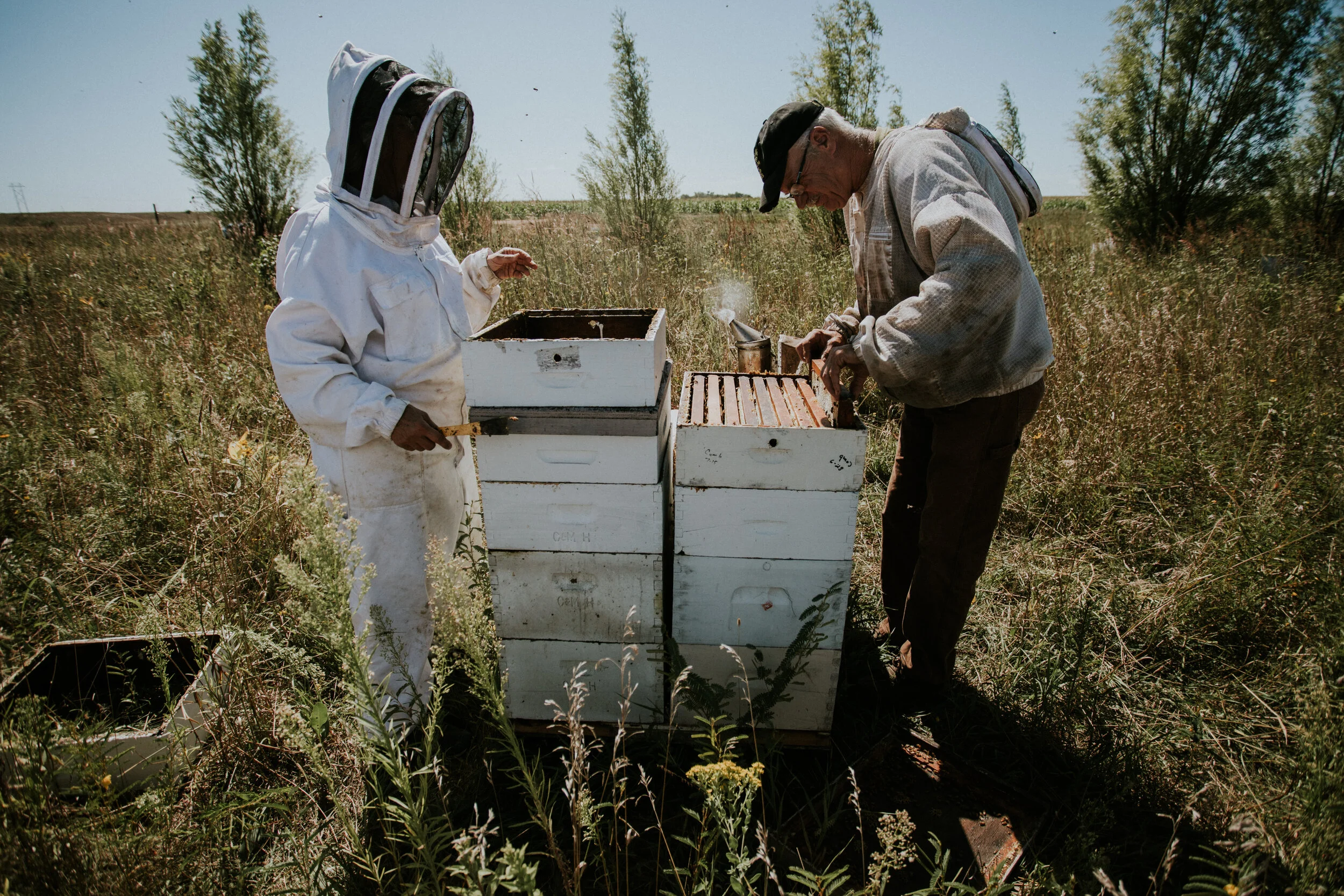The Impact of COVID-19 on Beekeeping
4-Minute Read
Beekeeping has been the quintessence of “social distancing” since before it was cool.
That’s not to make light of the situation at hand.
In a recent survey, we received feedback from hundreds of American beekeepers where they, by in large, viewed the recent events surrounding the global pandemic as an opportunity — not a hindrance.
Every human being has been affected in some way by the pandemic. Whether it’s the hurdles of involuntary homeschooling or difficulty gathering supplies in a timely manner, beekeepers are no exception to the deep challenges facing our globe.
In this article, we aim to first present the data we have collected, followed by brief discussion and predictions on what it may mean for the bee industry.
Our recent survey examined the current state of beekeepers as it pertains to the governmental restrictions and their beekeeping practices, as well as their intuitions on the future of the industry.
The majority of respondents considered themselves hobbyists, with 93% declaring they own 50 hives or less.
Nearly three out of every four beekeepers said they were “not so worried” about the potential impacts of coronavirus on their beekeeping practices. 22% of respondents admitted they were “somewhat worried,” leaving only a handful who classified themselves as “very worried” or worse.
“74% of beekeepers indicated that they are not so worried about the impact of COVID-19 on their operation.”
Current Challenges With Keeping Bees
Nearly three-fourths of beekeepers have witnessed no direct effects from the social distancing guidelines on their beekeeping.
Of the remaining 20% who have been impacted in some capacity (6% were uncertain), their biggest challenge lies largely in gathering necessary supplies.
Other challenges related to the pandemic have indirectly affected their practices, such as from distractions at home, financial constraints, or an inability to travel.
New beekeepers are particularly facing tough challenges.
As a mentorship-heavy industry, it has been made near impossible for new beekeepers to meet with their mentors or attend in-person classes. Some have moved to online classes in response.
The Economic Impact
Projections are just that — projections.
But we polled beekeepers on their hunches for how sales will do this year in light of the closings of farmers markets, restaurants, and the broader economic shifts from COVID-19.
A majority of beekeepers do not expect to see a decrease in sales due to the economic effects brought about by coronavirus.
Over 25% expect to see an increase in sales in 2020. Of these who expect to see an increase, 15% predict a growth of over 25% to the top line.
Conversely, 17% of beekeepers expect to see a decrease in sales, mostly split in the percent amount.
Two-thirds of beekeepers are predicting the bee industry will see growth in some capacity in 2020, with 16.5% estimating this growth will be considerable in measure.
Less than 14% are predicting negative growth for the industry.
“Over 25% of beekeepers still expect to see an increase in sales in 2020.”
The Long-Term Health of Bees
In a final, partially non-coronavirus-related question, we asked beekeepers how concerned they are about the long-term health of their bees.
Over 75% of beekeepers said they are at least “somewhat concerned” about the long-term prospects, while 44% said they are “very concerned” or worse.
Analysis & Predictions
It may be of no surprise that apiarists are largely unconcerned with the COVID-19 pandemic affecting their ability to keep bees.
But that’s not to say that there is or will be no impact on the industry.
Perhaps those feeling the greatest effects are new beekeepers. Education is the first pillar to successful beekeeping, and there is no better way to start than through sound mentorship.
It’s clear that mentorship and bee clubs have been hindered by the social distancing guidelines in place. New hobbyists find it difficult to get started on the right track, even though online education has been made more available of recent.
In contradiction to this, however, is the fact that many new hobbyists have arisen as a result of the shelter-at-home orders.
On the transaction side of things, there is no question that selling has been made more difficult — whether through the closings of farmers markets, restaurants, or otherwise. However, overall demand for honey is likely to see an increase along with grocery products, meaning sellers may have to find new avenues for distribution.
In sum, the economic shifts brought about by the coronavirus pandemic will touch every industry — some for the better, many for the worse.
Before we surveyed beekeepers across the country, we had predicted that the bee industry would remain resilient amidst these headwinds, and possibly even benefit.
While there will be unique challenges for beekeepers, it seems that there is more opportunity in store for those willing to stay optimistic.





